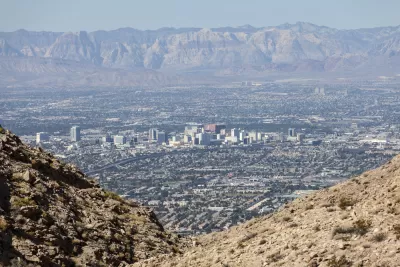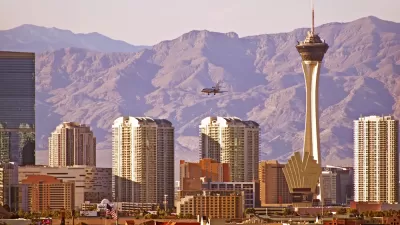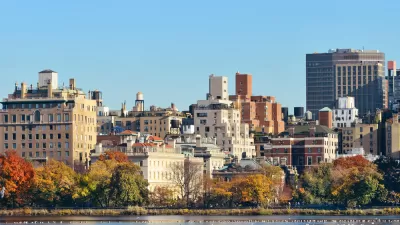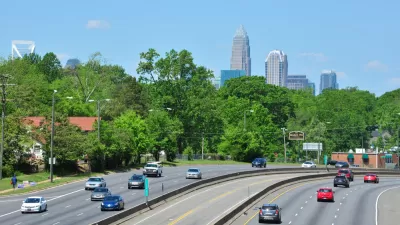Sprawling cities like Las Vegas must rein in unchecked growth and promote infill development and more sustainable transportation modes.

Cities like Las Vegas were largely built around the automobile in the optimistic mid-century era of massive urban expansion and highway construction. But according to an opinion piece by Linda Stout, “The solution to Las Vegas’ growing pains are sustainable urban planning and rapid decarbonization, not more suburbs and parking lots. In the age of climate change, our best options are smart growth and infill development.”
Stout argues that the Southern Nevada Economic Development and Conservation Act (SNEDCA), which state legislators passed last year and which could extend urban growth boundaries and encourage more single-family home construction, “reinforces patterns of car dependence and sprawl, jeopardizing Nevada’s mandated climate goals to reduce emissions 28% below 2005 levels by 2025, 45% by 2030, and net zero by 2050.”
Stout points out that the increasingly frequent climate disasters facing Nevada “do not impact communities equally,” aggravating public health threats in some of the most vulnerable communities. “People impacted most by discriminatory housing practices often have the fewest resources to deal with heatwaves.”
To reverse decades of sprawl, reduce emissions, and save money, Nevada needs zoning regulations and public infrastructure investments that favor high density and mixed use land development along with well designed public transit.
To promote more sustainable and equitable development, Stout suggests prioritizing infill development and “phasing out high emission vehicles and incentivizing a rapid deployment of energy efficient public transit, trucking, and light rail.”
FULL STORY: Smart growth, not sprawl, is the smart solution for Nevada

Alabama: Trump Terminates Settlements for Black Communities Harmed By Raw Sewage
Trump deemed the landmark civil rights agreement “illegal DEI and environmental justice policy.”

Study: Maui’s Plan to Convert Vacation Rentals to Long-Term Housing Could Cause Nearly $1 Billion Economic Loss
The plan would reduce visitor accommodation by 25% resulting in 1,900 jobs lost.

Planetizen Federal Action Tracker
A weekly monitor of how Trump’s orders and actions are impacting planners and planning in America.

Wind Energy on the Rise Despite Federal Policy Reversal
The Trump administration is revoking federal support for renewable energy, but demand for new projects continues unabated.

Passengers Flock to Caltrain After Electrification
The new electric trains are running faster and more reliably, leading to strong ridership growth on the Bay Area rail system.

Texas Churches Rally Behind ‘Yes in God’s Back Yard’ Legislation
Religious leaders want the state to reduce zoning regulations to streamline leasing church-owned land to housing developers.
Urban Design for Planners 1: Software Tools
This six-course series explores essential urban design concepts using open source software and equips planners with the tools they need to participate fully in the urban design process.
Planning for Universal Design
Learn the tools for implementing Universal Design in planning regulations.
Caltrans
Smith Gee Studio
Institute for Housing and Urban Development Studies (IHS)
City of Grandview
Harvard GSD Executive Education
Toledo-Lucas County Plan Commissions
Salt Lake City
NYU Wagner Graduate School of Public Service





























